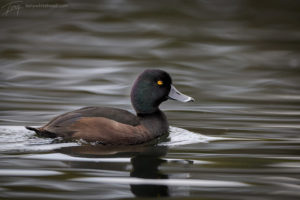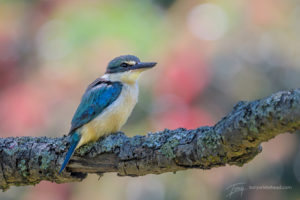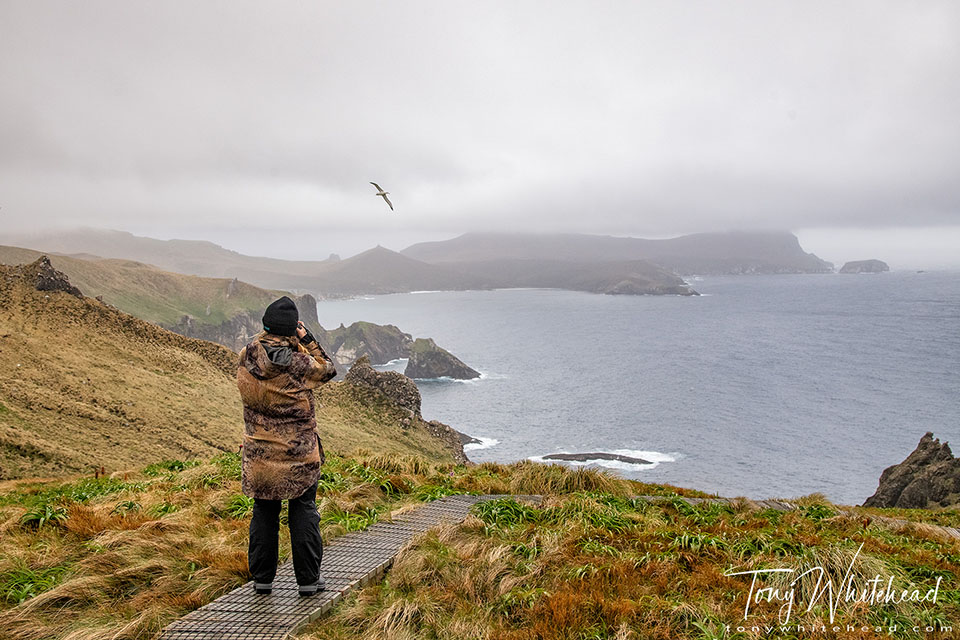
One of the highlights of a visit to Campbell Island is a chance to see groups of gamming Southern Royal Albatross. After a morning of feeding at sea they return late afternoon to fly and socialise.
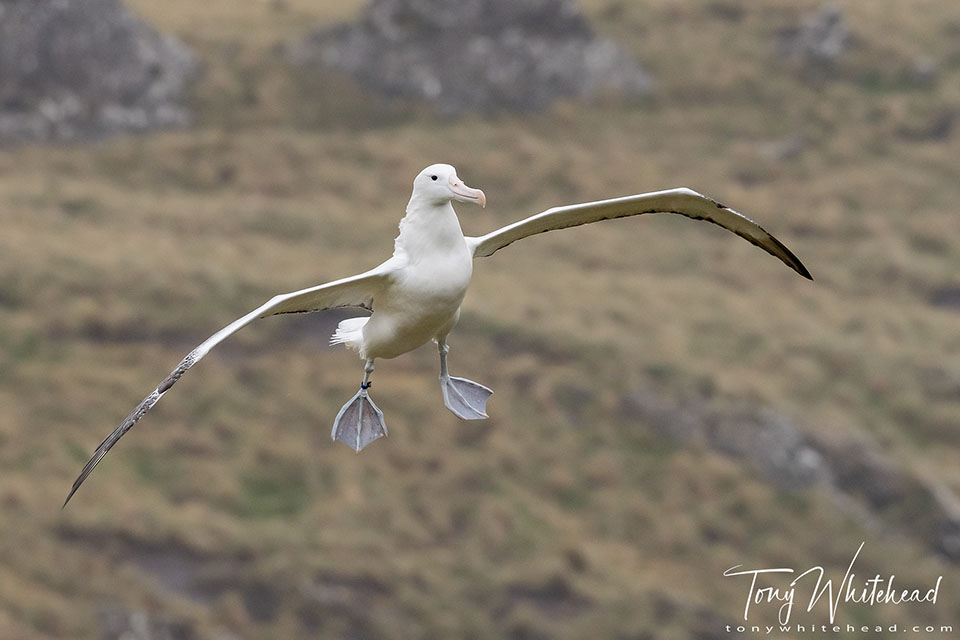
Southern Royal Albatross predominantly (99%) breed on Campbell Island (8500 pairs with around another 100 pairs on Auckland Island). Pairs are generally monogamous and breed every 2 years if successful in fledging a chick. Young birds leave the breeding island and return approximately 6 years later when reaching maturity.
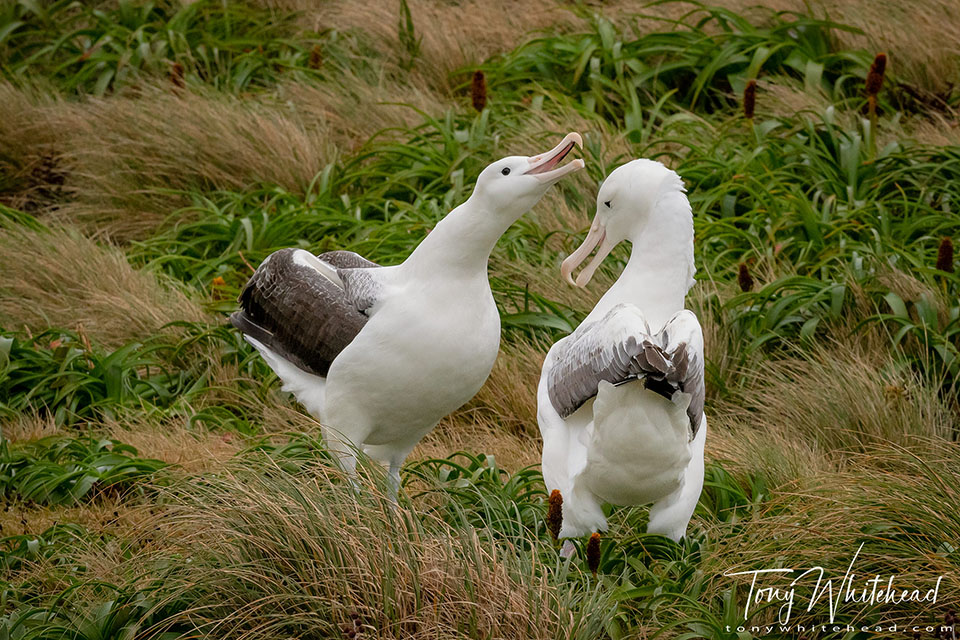
For the first few seasons they spend time socialising with other young birds to find a compatible mate. The gamming groups of birds display to each other and socialise as adolescent humans would at a party.
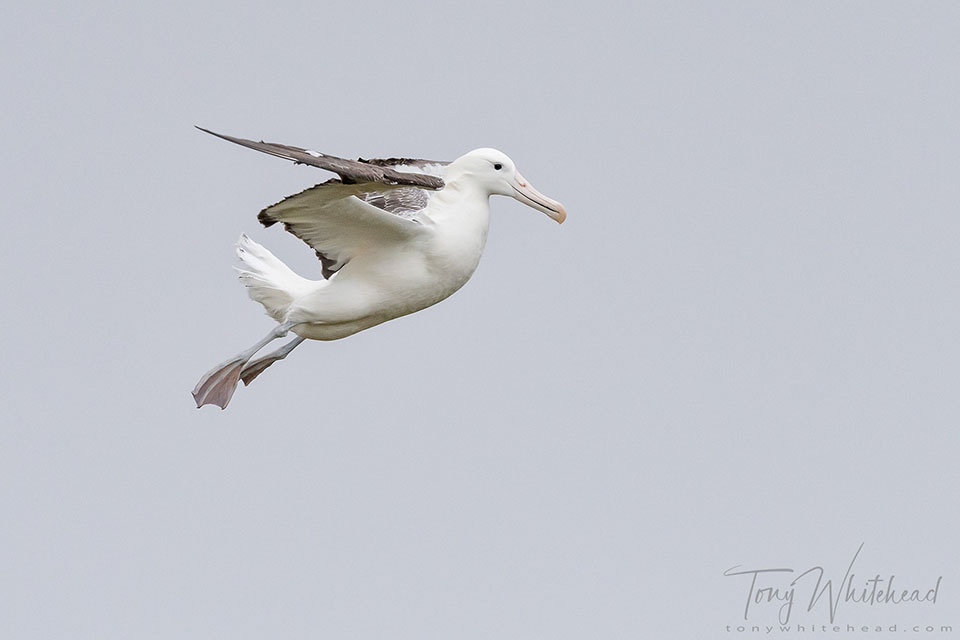
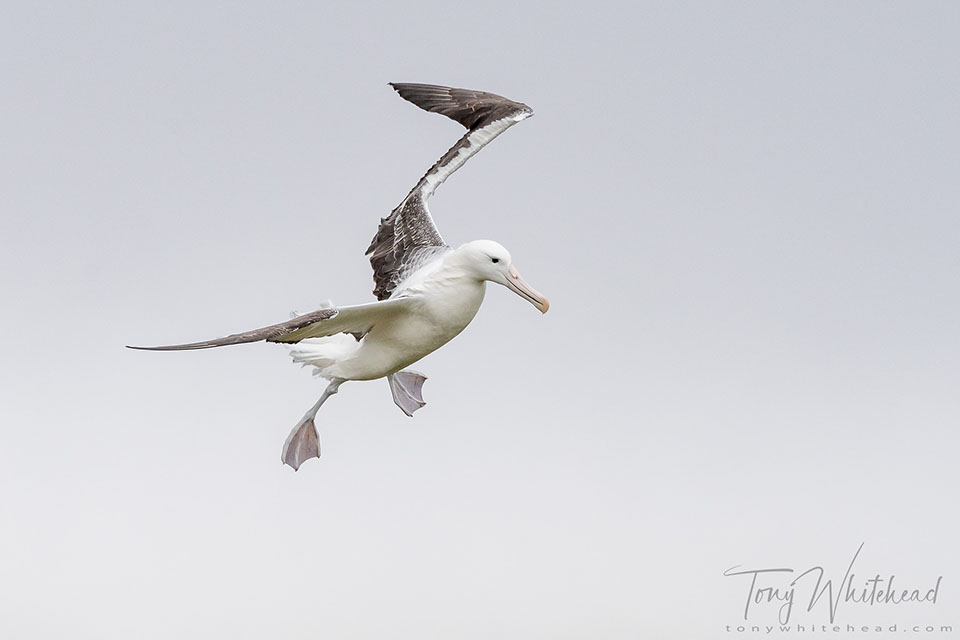
On this day we had hiked to the top of the Col Lyall boardwalk and were enjoying the large number of Southern Royals and occasional Light-mantled flying in the wind. The previous time I had been here the wind was so strong that I had been unable to stand and had to crawl the final section of the boardwalk on hands and knees in hail.
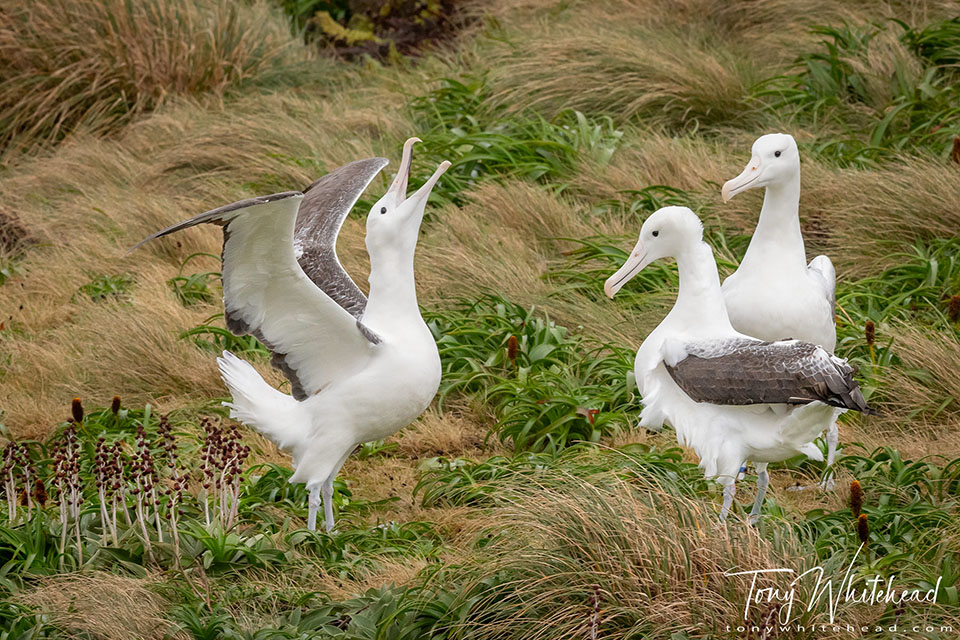
Despite the timing of this visit being exactly the same week of the year as my previous one 4 years ago, the yellow spears of Bulbinella rossii had passed their best. The yellow tipped brown flower stalks less impressive than they might have been. In contrast the Pleurophyllum flowers at the lower left in the image were still in good condition.
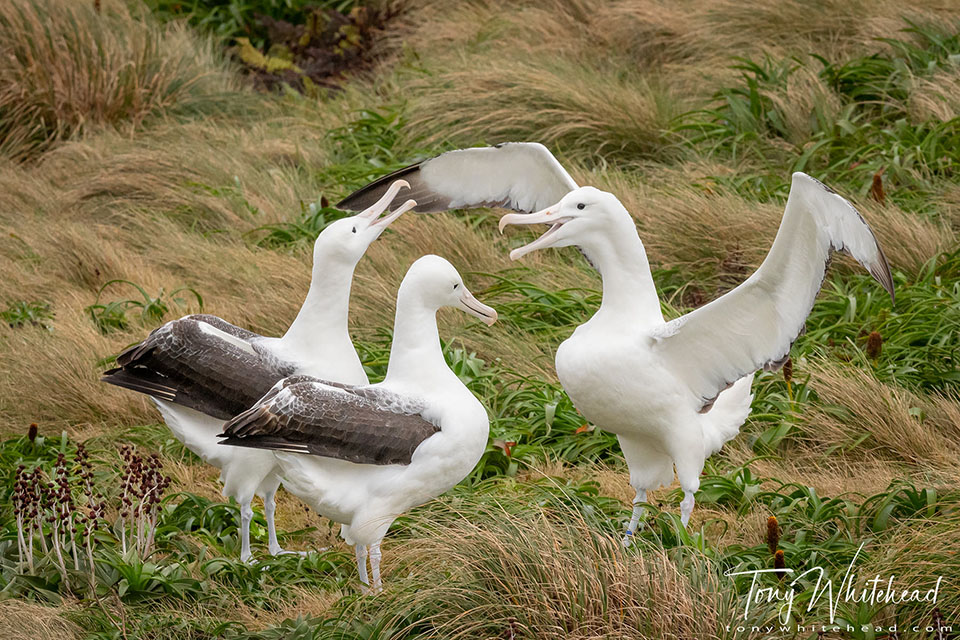
The displaying birds perform a variety of sky-calling and bill snapping displays. Photographically it can be difficult as you have no control of where they land which largely determines the background you have to work with. In this case there was no way of achieving any more background blur to achieve separation from the subject. You are also restricted in where you can move. This is limited to the boardwalk and constrains composition options.
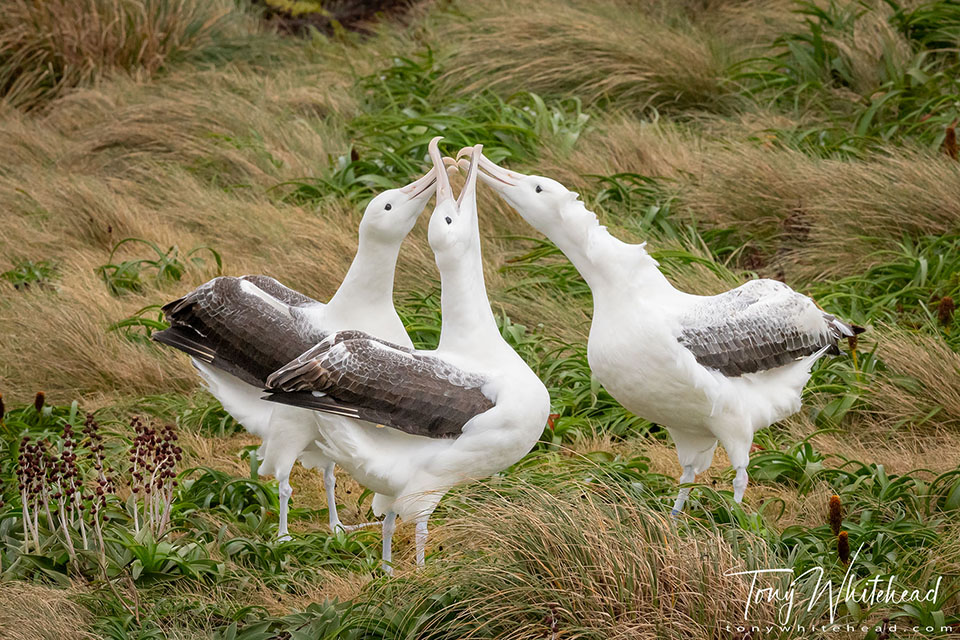
This final image was taken by retreating around the terminal loop in the boardwalk and using a very low shooting position to shoot between two clumps of tussock to include them as out of focus foreground elements. This provides a partial natural vignette to reduce the distracting busyness of the surrounds
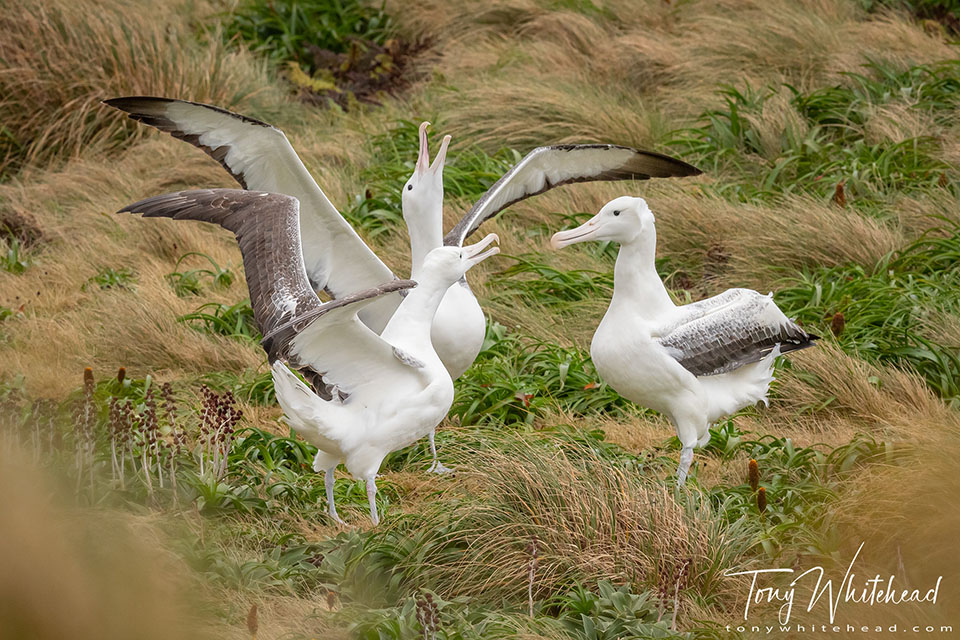
Albatross photos with Nikon D500 and Nikon 500mm f5.6PF lens. Landscape photo with Nikon D850 and Nikon 24-120mm f4VR.
